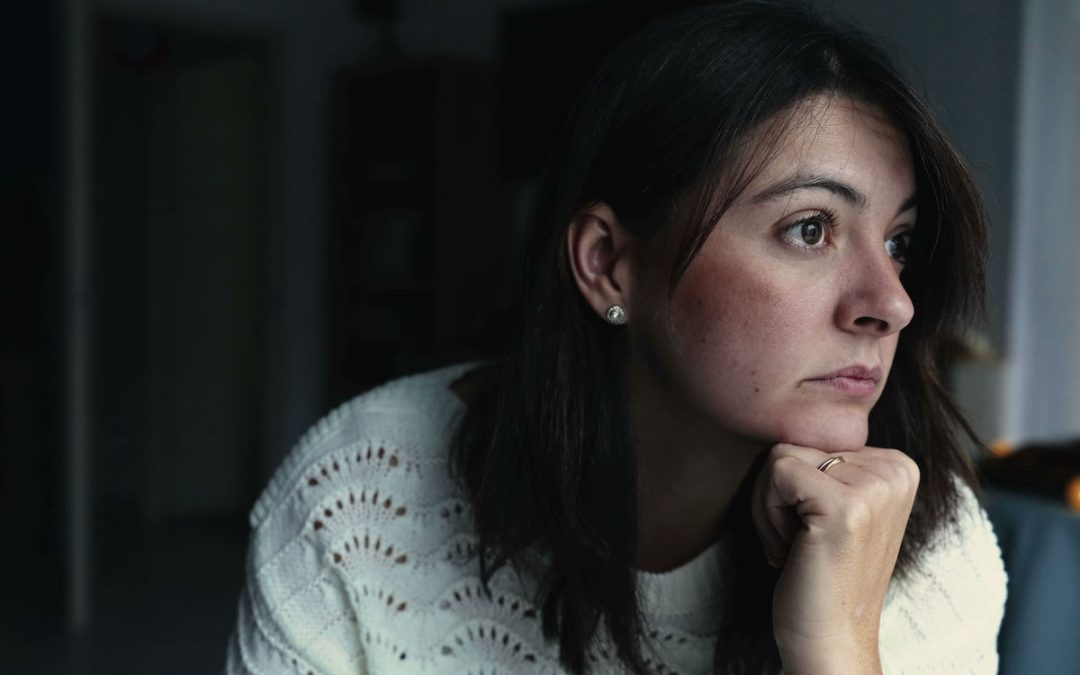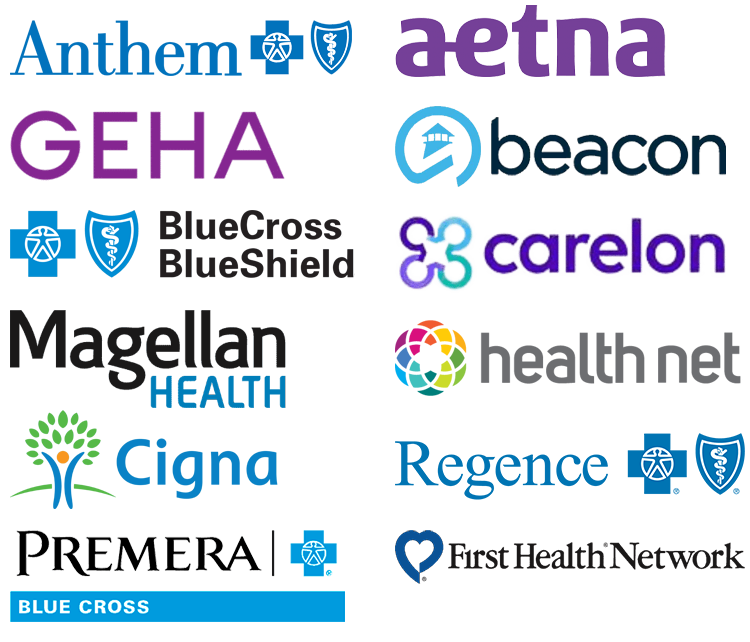Quick Summary
High-acuity mental health treatment provides 24-hour structured care for individuals experiencing severe symptoms like suicidal thoughts, psychosis, severe mood swings, or self-harm that outpatient therapy cannot safely manage.
In 2022, 15.4 million U.S. adults were living with serious mental illness, highlighting the widespread need for intensive care options.
Rosebay Behavioral Health offers residential treatment, partial hospitalization, and intensive outpatient programs with personalized evidence-based therapies, medical oversight, and family involvement to ensure safety, stabilization, and long-term recovery.
Key Takeaways
- Recognize urgent warning signs including suicidal talk, psychosis, aggressive outbursts, or inability to perform basic self-care as indicators that immediate high-acuity treatment is needed.
- Evaluate whether 24-hour monitoring and structured daily programming is necessary when weekly therapy sessions and medication adjustments are no longer keeping your loved one safe.
- Participate in family therapy sessions and request regular updates from the treatment team to strengthen communication, rebuild trust, and stay informed throughout the recovery process.
- Consider step-down care options like partial hospitalization or intensive outpatient programs as stability improves to support reintegration into daily life while maintaining therapeutic support.
When someone you love is in the middle of a mental health crisis, the experience can feel overwhelming. Parents, partners, siblings, and friends often find themselves caught between fear, confusion, and the urgent need to act. You may notice your loved one behaving in ways that feel dangerous or unfamiliar, such as talking about ending their life, losing touch with reality, or cycling through moods so rapidly that daily life becomes impossible. In these moments, families often wonder: What should we do? Where can we turn? Will treatment really help?
Seeking higher levels of care is not failure. It is often the necessary step to ensure safety, stabilization, and the possibility of long-term healing. High-acuity mental health treatment exists precisely for these moments, offering compassionate, structured support when traditional outpatient therapy is not enough. In 2022, the National Institute of Mental Health reported that 15.4 million U.S. adults were living with serious mental illness, showing how widespread the need for higher-level care can be.
At Rosebay Behavioral Health in the San Francisco area, families find a trusted partner who provides compassionate support when a loved one is experiencing a mental health crisis.
What High Acuity Mental Health Really Means
Mental health terms can sound clinical and intimidating, but “high-acuity” simply refers to situations where symptoms are severe, urgent, or potentially dangerous. It means the person you care about is experiencing challenges that go beyond what weekly therapy sessions or medication adjustments can handle safely.
Some common examples of high-acuity mental health needs include:
- Intense suicidal thoughts or suicide attempts
- Self-harm injuries or repeated attempts to hurt themselves
- Psychosis, which may include hearing voices, seeing things that aren’t there, or losing touch with reality
- Severe mood swings or mania that lead to reckless or dangerous choices
- Aggression or risk of harm to others
- Extreme withdrawal or dissociation to the point of being unable to care for basic needs
These symptoms can be frightening for families to witness. It’s natural to hope things might improve on their own, but high-acuity situations often require immediate, structured care to ensure safety and prevent lasting harm.
Signs Your Loved One May Need High Acuity Care
Families often find it difficult to know when to step in, and may question if what they’re seeing is serious enough to need higher care. While every situation is unique, there are common signs that it may be time to consider high-acuity treatment.
Urgent Signs That Require Immediate Attention
- Talking about suicide or making threats to end one’s life
- Paranoia, delusions, or hearing voices that cause fear or confusion
- Aggressive outbursts or threats toward others
- Complete inability to perform basic self-care, such as eating, bathing, or sleeping safely
The Centers for Disease Control and Prevention notes that suicide is a leading cause of death in the United States and affects people of all ages, which makes immediate care essential when these warning signs appear.
Ongoing or Escalating Signs
- Symptoms worsening despite regular therapy or medication
- Frequent hospital visits or repeated psychiatric emergencies
- Extreme isolation from family and friends
- Refusal or inability to follow treatment recommendations
- Severe impairment in school, work, or home responsibilities
As a family member, you don’t have to make this decision alone. Rosebay Behavioral Health helps families evaluate what level of care is most appropriate, ensuring that no one is left guessing when safety is on the line.
Why Weekly Therapy Is Not Always Enough
Weekly counseling is incredibly helpful for many people, but it has limitations when symptoms reach a crisis point. For individuals in high-acuity states, waiting a full week between sessions or trying to manage life outside of those sessions may not be realistic or safe.
High-acuity care provides:
- 24-hour monitoring and support, ensuring immediate response when symptoms escalate
- Structured daily programming that keeps individuals engaged in therapy and wellness activities
- Medical oversight to adjust medications quickly if needed
- A team-based approach so that no single therapist or doctor carries the full responsibility for care
Choosing higher-level treatment does not mean outpatient therapy failed. It shows that more intensive support is needed at this stage. The levels of care available through Rosebay provide options that can meet individuals where they are in their recovery.
What Families Can Expect from Rosebay High Acuity Care
Safety and Stabilization First
The first priority in high-acuity treatment is creating a safe environment. At Rosebay, this means 24-hour support in a calm, compassionate setting. Staff are trained to intervene quickly during moments of crisis, helping to reduce immediate risks such as suicidal thoughts or self-harm behaviors. Families can rest easier knowing their loved one is not alone.
Compassionate and Dignified Care
Mental health treatment should not feel cold or impersonal. Rosebay takes a trauma-informed approach that prioritizes dignity and respect. Clients are treated as whole people, with care that is grounded in empathy and understanding.
Personalized Treatment Plans
No two individuals experience mental illness in the same way. Rosebay creates customized treatment plans that may include:
- Evidence-based therapies such as Cognitive Behavioral Therapy (CBT) and Dialectical Behavior Therapy (DBT)
- Trauma-focused modalities to address underlying emotional pain
- Holistic supports like mindfulness and wellness practices to strengthen both body and mind
- Group therapy for connection and peer support
Alongside tailored therapies, Rosebay provides specialized support for a wide range of mental health conditions. These include:
This ensures that each client’s treatment plan addresses not only their immediate symptoms but also the underlying conditions contributing to distress.
Family Involvement and Support
Families are a critical part of recovery. Rosebay offers:
- Family therapy sessions to strengthen communication and rebuild trust
- Education about mental health conditions and warning signs of relapse
- Regular updates from the treatment team so loved ones stay informed without feeling helpless
This balance of clinical expertise and family involvement helps create a unified path toward healing.
Levels of High Acuity Treatment at Rosebay Behavioral Health
Residential Mental Health Treatment
For those needing 24-hour support and stabilization, residential care offers the highest level of structure. Clients live on-site, receiving constant support from a team of professionals. This setting allows for intensive work on safety, skill-building, and the foundation for long-term wellness.
Partial Hospitalization Program (PHP)
The Partial Hospitalization Program (PHP) provides a high level of structure during the day while allowing individuals to return home at night. It is an effective option for those who need intensive support but do not require overnight monitoring.
Intensive Outpatient Program (IOP)
The Intensive Outpatient Program (IOP) is ideal as a step-down level of care once stability improves. It allows individuals to continue receiving therapy and group support while beginning to reintegrate into work, school, or family life.
Wellness Support Services
Long-term recovery requires ongoing support. Rosebay offers Wellness Support Services that emphasize holistic well-being, helping individuals maintain progress through practices like mindfulness and stress management.
Ways Families Can Support Loved Ones in Care
It can be difficult to know what to do when your loved one enters treatment. Families often feel a mix of relief and uncertainty. Here are a few ways to provide meaningful support:
- Stay engaged: Attend family therapy sessions, ask questions, and stay open to learning.
- Maintain communication: Encourage your loved one without pressuring them for details they may not be ready to share.
- Prioritize self-care: Supporting someone in crisis is emotionally draining. Seeking your own support is an act of strength, not weakness.
- Be patient: Recovery is rarely linear. Progress may come with setbacks, but stability is possible with continued effort.
Reassurance for Families Seeking High Acuity Treatment
When a loved one needs high-acuity care, it is common to feel guilt or fear, questioning whether you missed earlier signs or worrying if life will ever return to normal.
Choosing high-level treatment is an act of care. It reflects a commitment to safety, stability, and the chance for a healthier future.
At Rosebay Behavioral Health, families find not just professional expertise but also compassion, understanding, and a genuine dedication to helping individuals rebuild their lives. With the right support, recovery is possible, and families can rediscover a sense of peace and connection.
Getting Help for Severe Mental Health Needs
If your loved one is showing signs of severe mental health struggles, compassionate help is available. Rosebay Behavioral Health provides residential care and 24-hour support for severe mental health symptoms and supportive programs to help both individuals and families find stability. Contact Rosebay Behavioral Health today to learn more about our approach. We proudly serve families throughout Marin County and the Bay Area who are seeking compassionate care for their loved ones.
Many families also have questions about how high-acuity treatment works. Here are answers to some of the most common concerns.
Frequently Asked Questions
What is high-acuity mental health treatment
High-acuity treatment is intensive mental health care for people experiencing severe symptoms such as suicidal thoughts, psychosis, or extreme mood swings. It focuses on safety, stabilization, and creating a path toward recovery.
How do I know if my loved one needs residential care
Signs may include:
- Talking about suicide or self-harm
- Severe withdrawal from daily life
- Losing touch with reality
- Aggressive or unsafe behaviors
- Repeated crises despite therapy or medication
Is high-acuity treatment the same as hospitalization
No. Hospitalization is often short-term and focused on crisis stabilization, while residential care at Rosebay offers longer-term support in a therapeutic, compassionate environment.
How are families involved in the treatment process
Families participate in therapy sessions, receive education about mental health, and stay connected with the treatment team through regular updates.
What conditions does Rosebay treat in high-acuity programs
Rosebay offers care for:
- Depression
- Bipolar disorder
- Schizophrenia
- PTSD and trauma-related disorders
- Anxiety disorders








